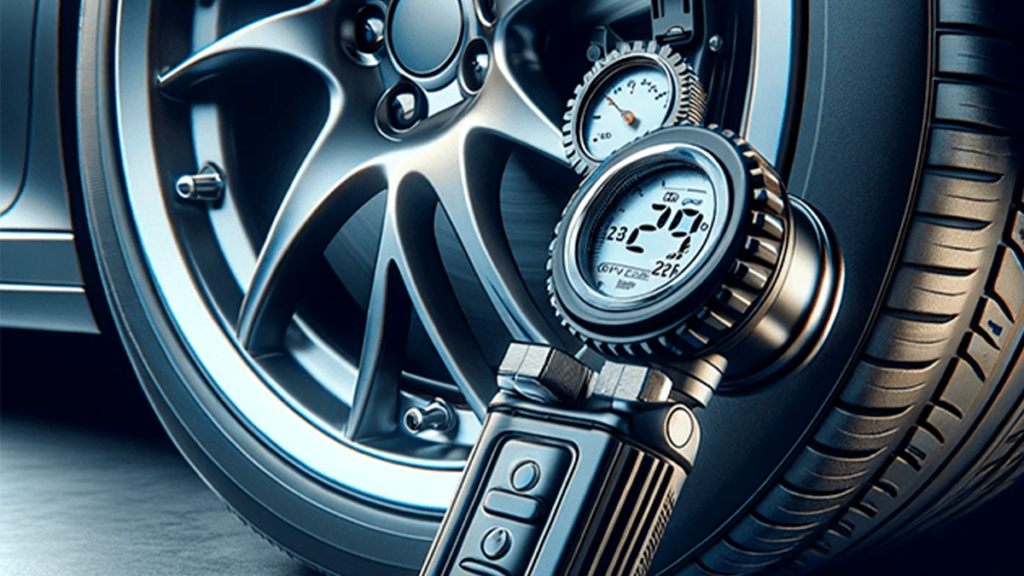
Introduction
In this article, we will discuss why using a tire pressure gauge is crucial for ensuring your safety on the road and preserving the longevity of your vehicle. When it comes to maintaining your vehicle, one important aspect that often gets overlooked is checking the tire pressure. Many drivers underestimate the significance of proper tire pressure and the impact it can have on both their safety and their vehicle’s performance.
Table of Contents
1. Using a Tire Pressure Gauge for Your Safety
Driving with underinflated or overinflated tires can pose serious risks to your safety. When your tires are not properly inflated, it affects their grip on the road, increasing the chances of accidents. Underinflated tires can cause poor handling, reduced traction, and longer stopping distances. On the other hand, overinflated tires can lead to a harsher ride, decreased stability, and an increased risk of a blowout. By regularly using a tire pressure gauge, you can ensure that your tires are inflated to the correct pressure, providing optimal safety for you and your passengers.
2. Fuel Efficiency
Did you know that improper tire pressure can also impact your vehicle’s fuel efficiency? When your tires are underinflated, they create more rolling resistance, which means your engine has to work harder to move the vehicle. This extra effort leads to increased fuel consumption and decreased mileage. By using a tire pressure gauge to maintain the recommended tire pressure, you can improve your vehicle’s fuel efficiency and save money at the pump.
3. Tire Longevity
Proper tire pressure is not only essential for your safety and fuel efficiency but also for the longevity of your tires. Underinflated tires cause uneven tire wear, with the edges wearing out faster than the center. On the other hand, overinflated tires wear out more in the center. Both scenarios result in reduced tire lifespan and the need for premature replacements. By regularly checking and adjusting the tire pressure with a gauge, you can ensure even wear and extend the life of your tires, saving you money in the long run.
4. Handling and Performance
Another reason to use a tire pressure gauge is to maintain optimal handling and performance of your vehicle. Properly inflated tires provide better traction, allowing for improved control and maneuverability. Whether you’re driving on wet or dry roads, having the right tire pressure ensures that your vehicle responds predictably to your steering inputs. It also enhances braking performance, reducing the risk of skidding or sliding. By using a tire pressure gauge, you can fine-tune your tire pressure to match the manufacturer’s recommendations, maximizing your vehicle’s handling and performance capabilities.
5. Environmental Impact
Using a tire pressure gauge not only benefits you and your vehicle but also has a positive impact on the environment. When your tires are properly inflated, they produce less rolling resistance, resulting in reduced carbon emissions. By maintaining the correct tire pressure, you contribute to a greener and more sustainable future.
Conclusion
As a responsible driver, it is crucial to prioritize the maintenance of your vehicle’s tire pressure. By regularly using a tire pressure gauge, you can ensure your safety on the road, improve fuel efficiency, extend tire longevity, enhance handling and performance, and reduce your environmental footprint. Don’t underestimate the importance of proper tire pressure – it’s a small investment that yields significant benefits for both you and your vehicle.
Using a tire pressure gauge not only benefits you and your vehicle but also has a positive impact on the environment. When your tires are properly inflated, they produce less rolling resistance, resulting in reduced carbon emissions. By maintaining the correct tire pressure, you contribute to a greener and more sustainable future. As a responsible driver, it is crucial to prioritize the maintenance of your vehicle’s tire pressure. By regularly using a tire pressure gauge, you can ensure your safety on the road, improve fuel efficiency, extend tire longevity, enhance handling and performance, and reduce your environmental footprint. Don’t underestimate the importance of proper tire pressure – it’s a small investment that yields significant benefits for both you and your vehicle.